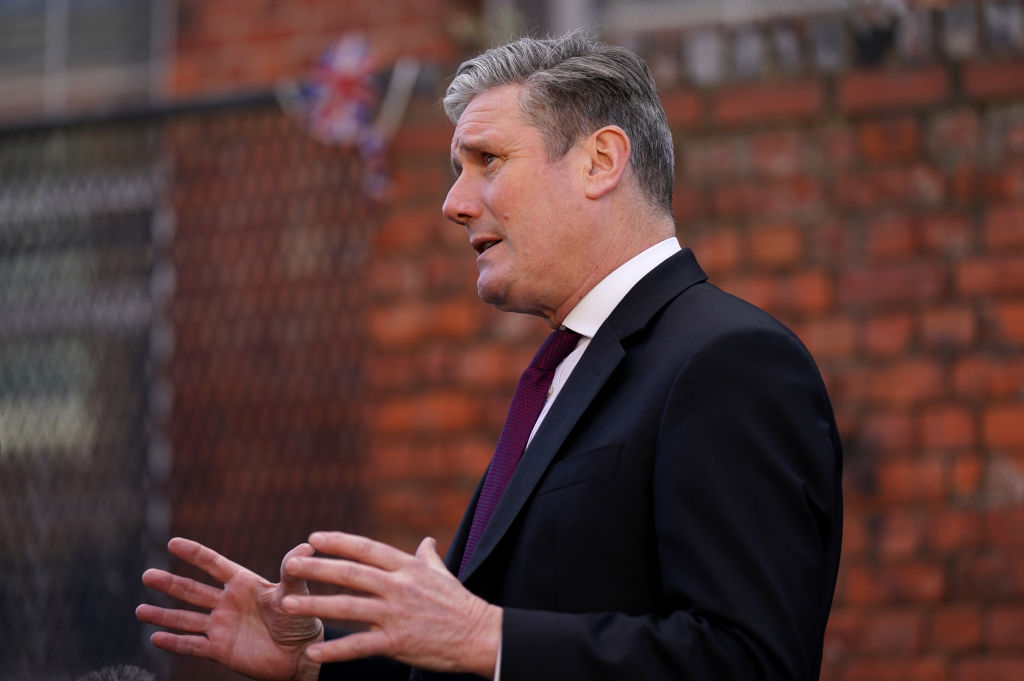If Labour want to win an election, they have to get used to going on the attack

Politicians use attack ads for the simple reason that they work and Keir Starmer is no exception, writes Josh Williams
It is election time, albeit only of the lesser and local variety, and Labour has gone for the jugular. Last week, the party published the first of a series of campaign adverts that take direct and personal aim at Rishi Sunak. The most controversial accuses the Prime Minister of believing those who sexually assault children should walk free.
Cue howls of outrage in a barrage of tweets. Labour, we were told, has lowered politics into the gutter. In response, it is worth bearing in mind that politics already operates down there a lot of the time, and there may be good reason for that.
Take just one past Presidential election, for instance. In it, a sitting President was accused of being in league with a foreign power. He responded by revealing the details of the inappropriate sexual liaisons of his challenger.
You might think this sounds rather like 2016 or 2020, and it does. But that’s only because if political history doesn’t repeat itself, it certainly rhymes. The year of this particular contest was 1800, and the two opponents were America’s second and third presidents.
First, Thomas Jefferson accused his predecessor of alliance to the most contemptible of all enemies: the English. Then, Samuel Adams responded by publicising Jefferson’s relationship with Sally Hemings, one of his slaves. When Jefferson won, Adams left Washington before his successor’s inauguration. Even Donald Trump had the good grace to stay around for that.
Negative campaigning goes a long way back, therefore. Rubbishing the record or character of your opponent is what political communicators are supposed to do. The Conservatives won the 1979 election not on the back of the promise of Thatcherism, but rather under the banner of the exquisite, Saatchi & Saatchi-drafted attack line: “Labour Isn’t Working.” The same firm came to the rescue again in 1992, blowing Labour’s hopes of victory away with “Labour’s Tax Bombshell”.
As politics has turned from an art to something like a science, researchers have been able to objectively examine whether negative campaigns like these actually work. A 2019 study was illuminating. Reviewing Senatorial elections in 2010 and 2012, the researchers compared the voting behaviour of those who saw political advertising – both negative and positive – against those who didn’t.
Positive election messaging, focused on the virtues of a candidate and their policies, had no discernible effect on voting behaviour. Negative messages, on the other hand, most certainly did. They encouraged more people to vote, and they encouraged them to vote for the attacker and against the attacked.
But politics is only something like a science. Not all negative campaigns are alike, and neither is the context of every campaign. In 1997, the Conservatives launched another excellent Saatchi-designed poster, reading: “New Labour, New Danger”. The image was that of Tony Blair with the addition of a pair of gleaming, red eyes. The Conservatives duly collapsed to a defeat that took them thirteen years to recover from.
So will Labour’s new advertisements work in the local elections next month, and at a general election due to follow a year or so after? There is good reason to believe that they could.
Two weeks ago, I co-authored Red Shift with my colleagues at Labour Together, exploring who the electorate in England and Wales is. Across the country, we found people feeling profoundly insecure. Their financial circumstances were often perilous, living in local communities that feel like they are in decline, and relying on public services that seem to be at the point of collapse.
If Labour is to win the next election, its first task is to tie this sense of malaise to the governing party. The Conservatives’ approval ratings are already perilously low, but it has been widely noted that Rishi Sunak’s are a touch higher. The first task for any intelligent campaigner is therefore to argue that the buck stops with the person with ultimate control: the Prime Minister.
In a beautiful speech, delivered in 2016, Michelle Obama told the Democratic National Convention how she suggested it responded to the negative campaign prosecuted by Donald Trump, the Republican nominee. “When they go low,” she said, “we go high.” The words may live on in the memory, but so should her party’s catastrophic defeat of 2016. Sometimes it pays to go low.